The University’s 2021–30 Strategic Plan, “Transformation Morgan,” makes it clear: Morgan’s faculty are a pillar of the tremendous success the institution has seen during the past decade, and its members are vital to attainment of the high goals the institution’s leadership has set for the next nine years.
But the strategic plan is hardly the only source of praise for Morgan’s faculty. As they prepare their students to Lead the World — government, industry, community — the world is also increasingly acknowledging the leadership abilities and research innovation of MSU educators and is elevating them to positions where they can make the greatest impact.
Of the nearly 600 faculty here at the National Treasure, we celebrate the individuals spotlighted in this feature as well as the many others — such as Harold Morales, Ph.D., associate professor of Philosophy and Religious Studies and Director of the Center for the Study of Religion and the City; Krishna Bista, Ed.D., professor of Community College Leadership; Thurman Bridges, Ph.D., associate professor of Teacher Education and chair of the Physical Education Department; Viji Sitther, Ph.D., associate professor of Biology; and Lorece Edwards, Dr.P.H., professor of Public Health — who play vital roles in the University’s mission of broadening access to the opportunities of higher education and who add greatly to Morgan’s stature as a world-class Public Urban Research University.
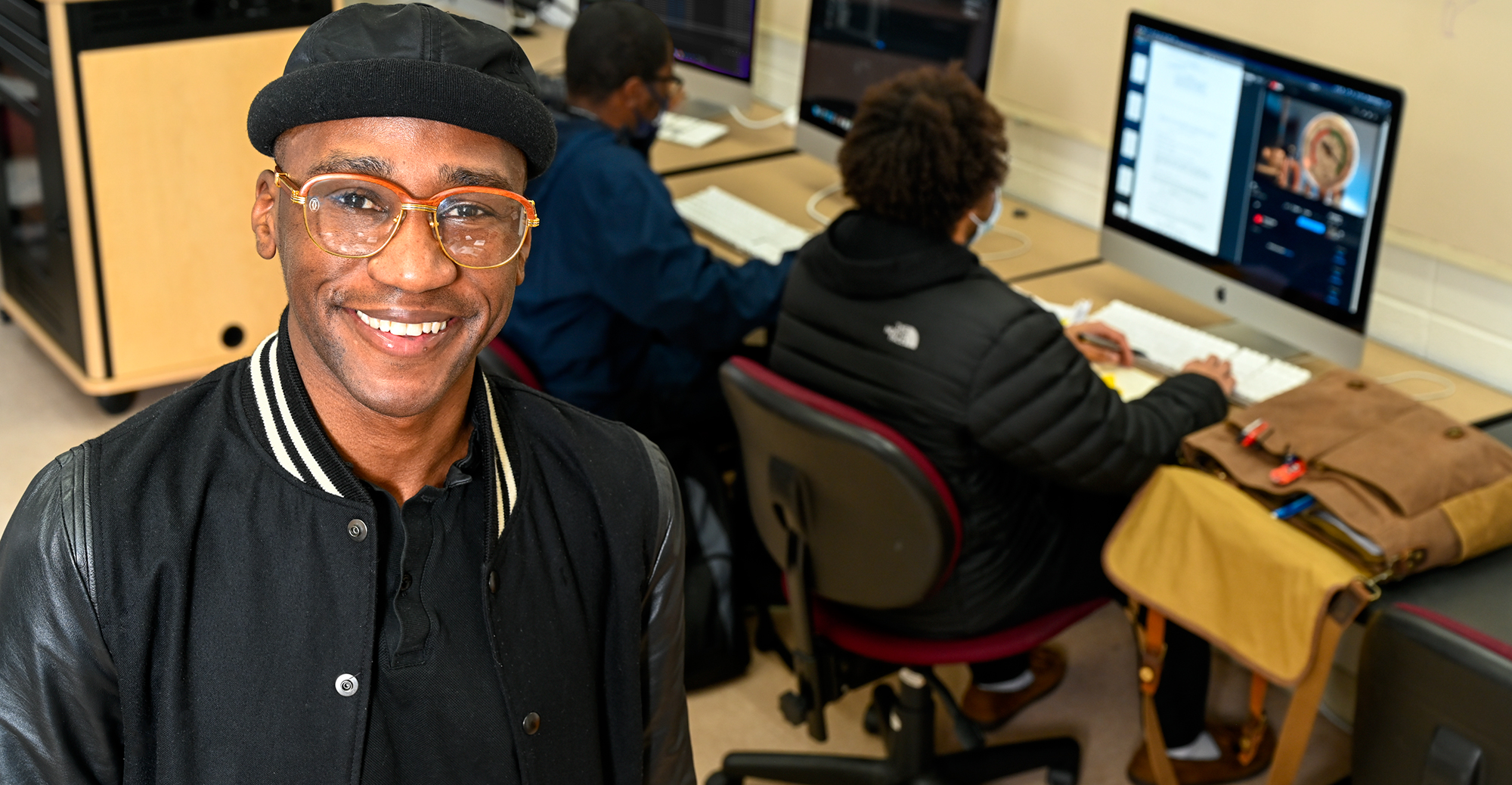
MK Asante, associate professor of English at Morgan since 2006, is a storyteller whose tales of the African- American experience resonate with people of all races. He is the author of four books, including his bestselling memoir “Buck”; an award-winning filmmaker; a recording artist; and a distinguished educator from a family of educators in which “HBCUs, in general, were really held in high, sacred regard,” he recalls.
Born in Zimbabwe and raised in Philadelphia, Pennsylvania, Asante draws upon his varied life experiences and eclectic education to challenge his students at Morgan to be creative by “connecting the dots,” being emotionally vulnerable and remembering the high value of their stories. On the other side of the balance, he says, his students have inspired him with their intellectual diversity, creative courage and resiliency. His youthful appearance belies the fact that Asante is a coach of his son’s junior league basketball team and came of age before the rise of social media. He says learning his students’ perspective has been valuable and has helped him channel his own creativity into projects in new media such as podcasts and Snapchat. Most recently, his creative side was on display for the nation to see when he performed two Monday Night Football intros.
Those diverse media are “just languages,” Asante says, “ways to communicate with people.”
MK Asante, professor of English and award-winning author and filmmaker
SOAS University of London
Lafayette College, B.A., Africana Studies
UCLA School of Theater, Film and Television, M.F.A., Screenwriting
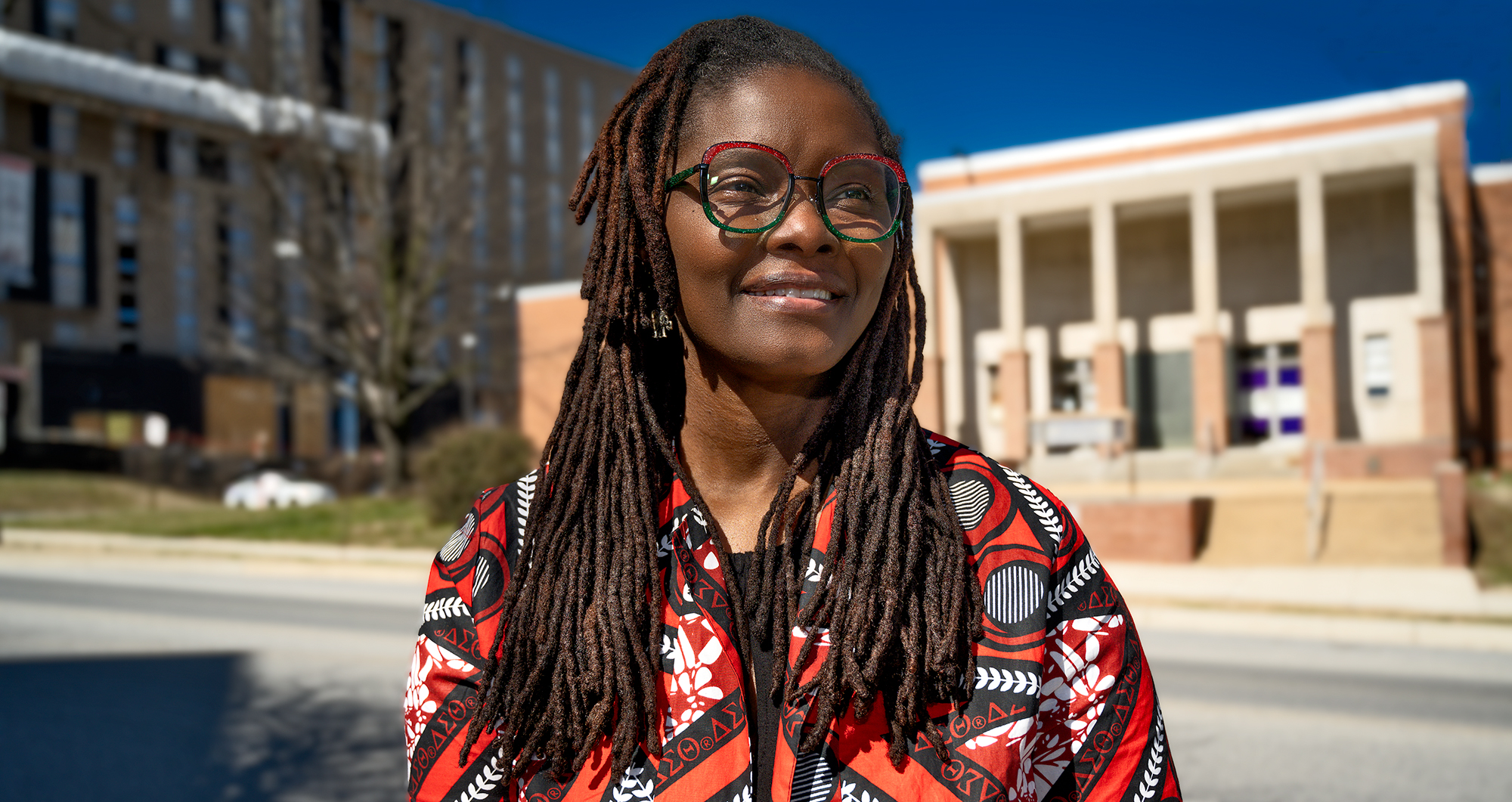
Counting her time growing up near the Morgan campus, raised by a mother who revered higher education, Natasha Pratt-Harris, Ph.D., has been a member of the Morgan family for more than two decades. Today, her focus has shifted far from playground games, to researching and rectifying disproportionality that adversely impacts Black males and other people of color in the criminal justice system. But to Dr. Pratt-Harris, Morgan is still “home, sweet home,” as she ends her 15th year as an associate professor of Sociology and Anthropology at the University. Before becoming faculty, she joined MSU as a senior research associate in the Office of Institutional Research in 2000 and later served there as director for more than five years.
Her students have flourished “in ways that I did not imagine early in my career,” in courses such as Police and Society, which she designed to “address some of our most pressing community concerns: police/community relations,” says Dr. Pratt-Harris. “Students are expected to get as much out of me as I can give them,” she adds. “Students are expected to take the practice in the classroom beyond the classroom and apply these to their personal lives, career and academic opportunities.”
Being a faculty member at Morgan “has been a proverbial love affair,” says Dr. Pratt-Harris, who served as the lead of the instrumental study detailing the community’s perceptions of and experiences with the Baltimore City Police Department, following the 2017 U.S. Department of Justice Consent Decree.
Natasha Pratt-Harris, Ph.D., associate professor and coordinator of the Criminal Justice program in the Department of Sociology and Anthropology, and expert in racial disproportionality in the U.S. criminal justice system
University of Maryland, College Park, B.A., Criminology/Criminal Justice
University of Baltimore, M.S., Criminal Justice Administration
Howard University, Ph.D., Sociology
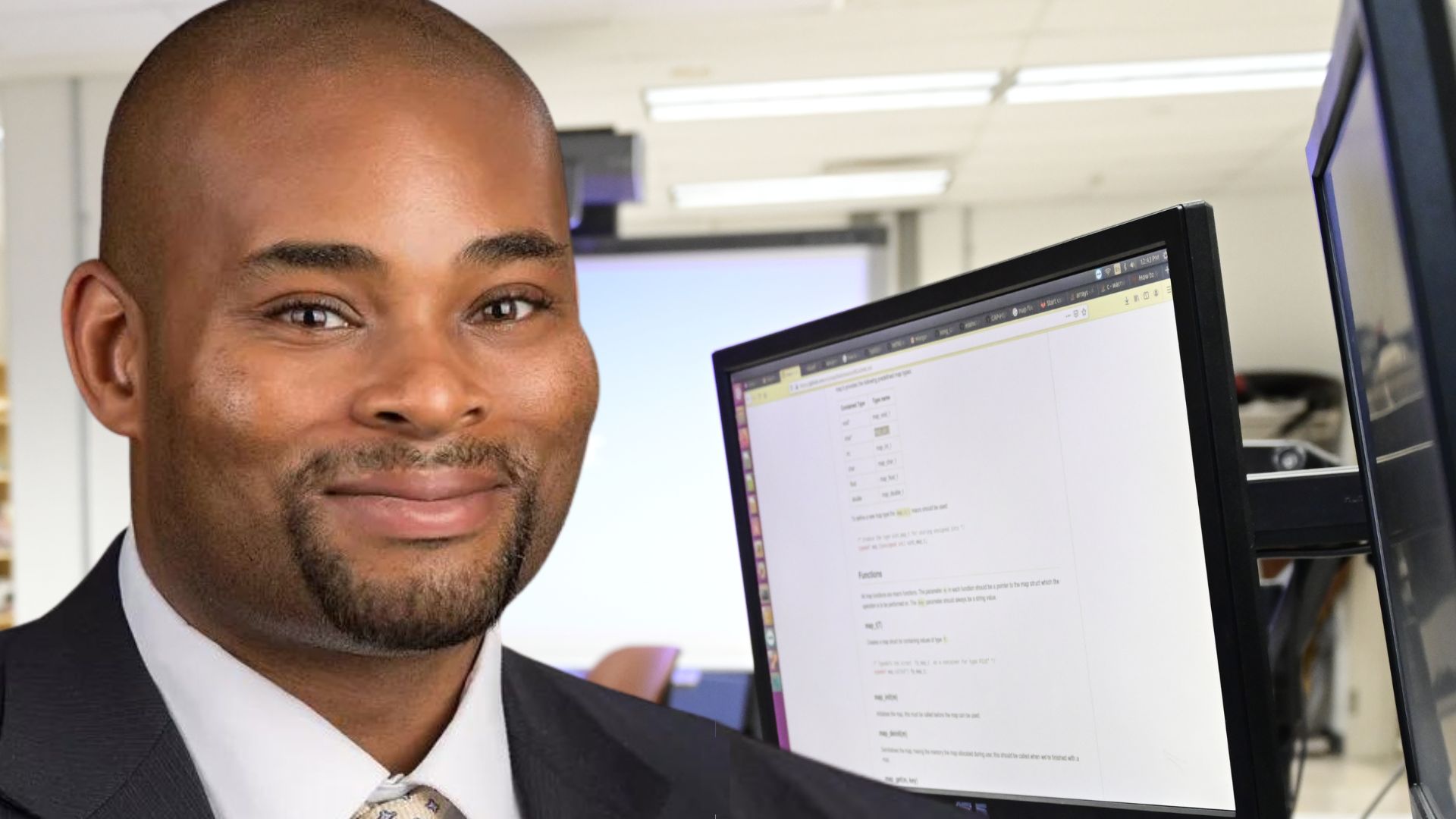
By his own admission, Edward C. Dillon Jr., Ph.D., associate professor in Morgan’s Department of Computer Science since 2017, prefers a nonverbal approach. “I am usually perceived as a man of very few words,” he says. “I believe actions speak louder than words.”
Dr. Dillon’s actions spoke very loudly in 2020, when he landed a three-year grant of nearly $400,000 from the National Science Foundation to help address the underrepresentation of Black, Latinx and Native American people and Pacific Islanders in computer science and related fields. His “Targeted Infusion Project: Infusing Learning Initiatives for Improving the Programming Proficiency of Computer Science Majors at Morgan State University” utilized two new learning approaches to enhance select computer science courses at MSU. The same year, Morgan’s School of Computer, Mathematical and Natural Sciences recognized his work by selecting him to receive the Dean’s Faculty of the Year Award in Research.
During Dr. Dillon’s journey to Morgan, he has developed effective skills in problem solving and innovative thinking to study human factors in computing. And as his recent achievements show, he places a high priority on passing those skills on to his students. In addition to professorial duties, Dr. Dillon serves as a faculty advisor and coach for students participating in national innovation challenges and hackathons.
“My favorite thing about Morgan State and working at this institution is the students,” Dr. Dillon says. “I enjoy teaching, advising and mentoring students while watching them reach their full potential.”
Edward Dillon Jr., Ph.D., assistant professor of Computer Science and expert in social computing, human-centered computing and computer science education
University of Mississippi, B.A., Computer Science
University of Alabama, M.S. and Ph.D., Computer Science
People-centric educator Mark Barnes, Ph.D., gives full meaning to the term “human geography,” working constantly to build interdisciplinary campus communities around his academic discipline as he strives to guide his students to global citizenship. Dr. Barnes combines and implements his interest, knowledge and expertise in fields including North American geography, climate and society, environmental policy and planning, transportation, urban studies and religious studies.
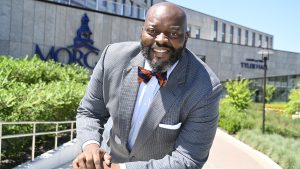 An associate professor of History and Geography at Morgan, Dr. Barnes is a founder of the University’s Geospatial Collaborative, which provides new career pathways for students by giving them exposure to leading technologies used in burgeoning fields such as geographical information systems. As one of the creators of Morgan’s Environmental Workgroup, he has helped chart new and innovative ways to advance environmental learning, and as a developer of a new student group named the Geographical People’s Society (GPS), established with the support of the American Geographical Society, he promotes the mission of increasing campus awareness of environmental matters with the aid of geospatial technologies.
An associate professor of History and Geography at Morgan, Dr. Barnes is a founder of the University’s Geospatial Collaborative, which provides new career pathways for students by giving them exposure to leading technologies used in burgeoning fields such as geographical information systems. As one of the creators of Morgan’s Environmental Workgroup, he has helped chart new and innovative ways to advance environmental learning, and as a developer of a new student group named the Geographical People’s Society (GPS), established with the support of the American Geographical Society, he promotes the mission of increasing campus awareness of environmental matters with the aid of geospatial technologies.
Morgan’s rapid growth during his nine years on the faculty has been a pleasant surprise, Dr. Barnes admits. It has also been a boon for his teaching.
“A geographer whose interests lie in institutional decision-making around environmental risk reduction and adaptation could not ask for a better place to teach the causes and consequences of human-environment interactions than Morgan,” he says. “(MSU’s) architectural asset growth, along with its increases in student population and development expansions like new student life and degree programs, provide the perfect living laboratory for geographic instruction and research as well…. Morgan truly is the place to be for a keen introduction to the use of the principles and tools of the discipline to ‘lead the world.’ ”
Mark Barnes, Ph.D., associate professor of History and Geography and leading researcher in North American geography; climate and society; environmental policy and planning; transportation; and urban studies
West Chester University, B.A., Geography and Planning
Temple University, M.A., Urban Studies
Rutgers University, Ph.D., Geography
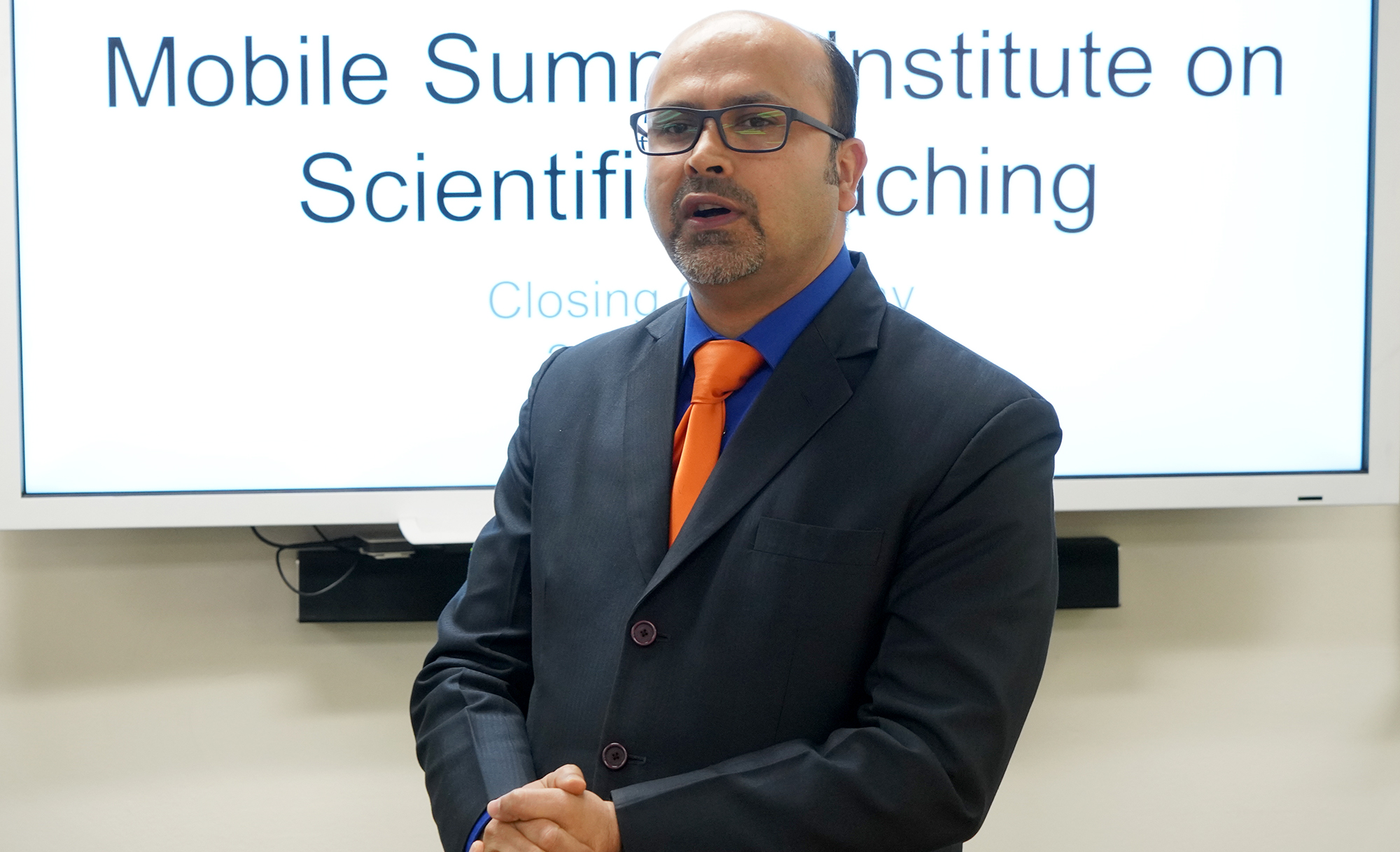
Born on the other side of the globe, in Nepal, in 1975 — the year Morgan State became a university — educator, scholar and student advocate Uttam Gaulee, Ph.D., professor in MSU’s doctoral program in Community College Leadership, has dedicated his career to ensuring the success of all students. He is an avid supporter of community college and believes the institution is beneficial socially and economically within and beyond the United States. Dr. Gaulee has amassed two decades of experience in teaching and educational administration and research, as he seeks the connections between education and international development and uses his findings to create tangible solutions that benefit both students and institutions. His diverse international education informs his research: he holds four academic degrees from universities in the U.S. and abroad.
“I have been to many universities in Asia, Europe and the United States. I have not found a better university than Morgan State,” Dr. Gaulee says. “There are so many favorite things at this great institution of higher education. If I had to pick just a few, I would say, the heritage, the colleagues and the students. Morgan’s history makes you humble, and the campus steeped in its heritage gives you a sense of a forward thinking community of amazing humans.”
Since joining Morgan in 2016, Dr. Gaulee has gone on to serve as president of the Society of Transnational Academic Researchers (STAR), which advances global social mobility through innovative research and progressive advocacy efforts. He has also been instrumental in opening the door to students from his native Nepal to study at Morgan. The University now has 11 Nepali students enrolled.
Uttam Gaulee, Ph.D., professor of Higher Education in the Community College Doctoral Program and expert in international higher education
Tribhuvan University, B.Ed., English and Economics
Tribhuvan University, M.Ed., English Education
University of Pittsburgh, M.Ed., Student Affairs
University of Florida, Ph.D., Higher Education Administration and Policy
… I’ve always been happy to share anything… with my students.
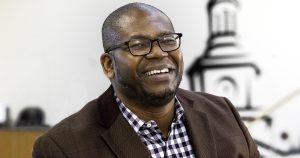 Frequent appearances on MSNBC, CNN and other popular media outlets have also increased the global impact of Jason Johnson, Ph.D., political analyst, commentator and author, but he says his role as associate professor of Multimedia Journalism at Morgan State University is central to his life.
Frequent appearances on MSNBC, CNN and other popular media outlets have also increased the global impact of Jason Johnson, Ph.D., political analyst, commentator and author, but he says his role as associate professor of Multimedia Journalism at Morgan State University is central to his life.
His experience at Morgan’s School of Global Journalism and Communication since he arrived in 2016 has been “absolutely transformative,” says Dr. Johnson, who creatively integrates popular culture and political discourse to shape his classroom instruction. “I’ve had an opportunity to grow here, and I’ve had an opportunity to receive unprecedented levels of support from the University.”
During his time in academia, Dr. Johnson has become one of the more prolific voices on Twitter, amassing more than 276,000 followers. And, as Morgan envisioned, his students have benefited from Dr. Johnson’s ever-growing presence in front of international audiences. On MSNBC, he often talks about his Morgan students and what he’s heard and learned from them. And in his work as professor — defining “real” journalism and challenging his students to deepen their knowledge of how the world actually works — “I like to think that I’ve given back: taking the students to The Daily Show, taking the students to media studios where I’m working. I’ve always been happy to share anything I’m working on with my students and the University as a whole.”
Jason Johnson, Ph.D., associate professor of politics and journalism in the School of Global Journalism and Communication , author and political analyst on mainstream TV, radio and newspapers
University of Virginia, B.A., Government
University of North Carolina at Chapel Hill, M.A. and Ph.D., Political Science
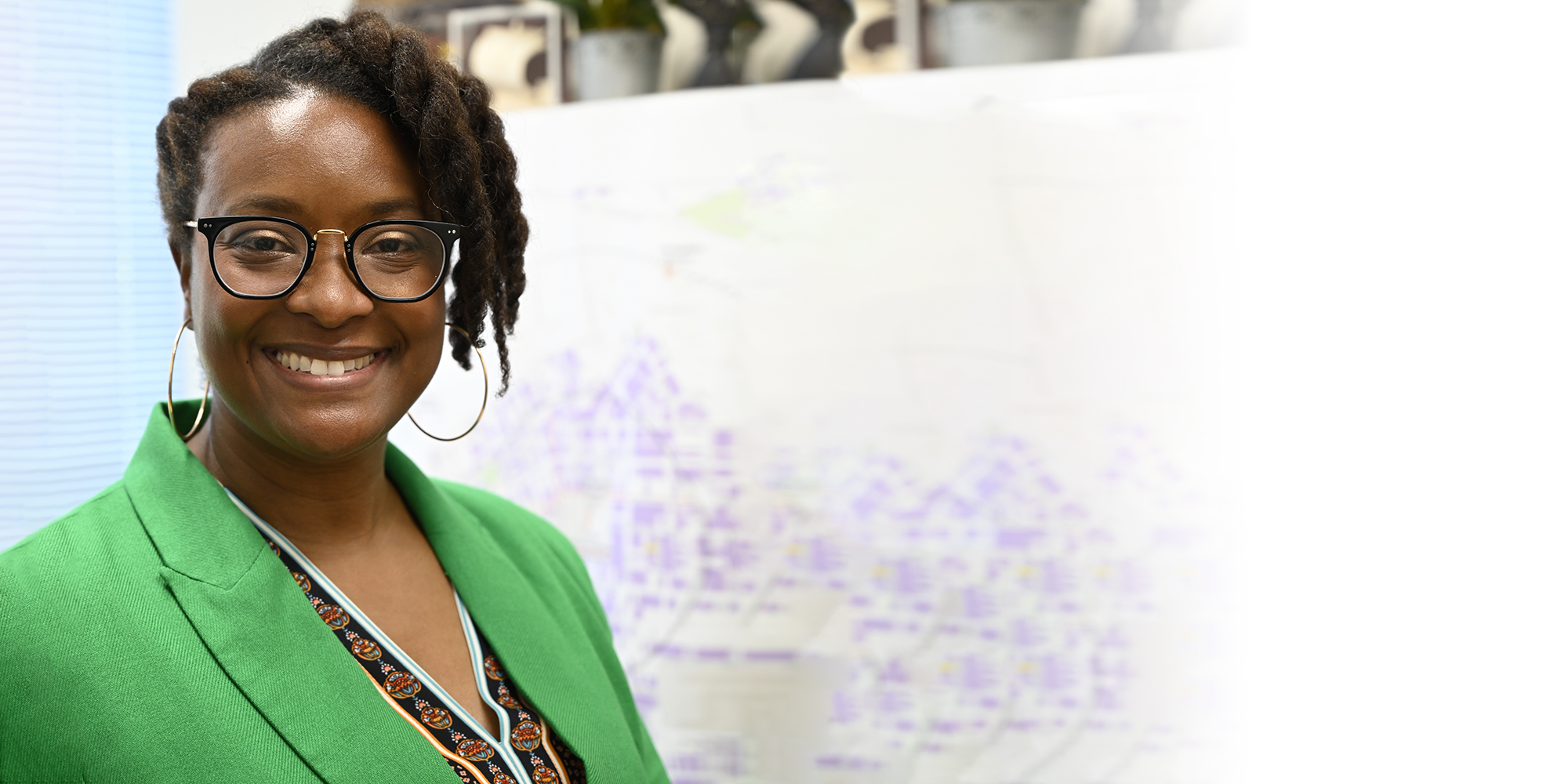
As an associate professor of City and Regional Planning at Morgan, Tonya Sanders-Thach, Ph.D., also believes in ‘giving back,’ acting on what she sees as the full range of duties of her position: teaching, research and service.
“In the discipline I’m in, the community calls to you, and you want to be on the ground, addressing the huge need in Baltimore. I’m hoping that over a career of 30, 40 years, I can start making some inroads,” Dr. Sanders- Thach says.
She’s off to a very good start. The Maywood, Illinois, native came to her passion for faith-based community development and curriculum development from personal experience: seeing the church she grew up in revitalize a declining community. Coming to Morgan in 2012, she has expanded and implemented her research on those topics and has served as president and vice president of the University of Maryland Extension Baltimore City Advisory Board. As a teacher, she has learned, “you have to be able to adapt in a classroom to the students who are sitting in front of you. You have to be very dynamic and be able to read the room and adjust, on a dime.”
Dr. Sanders-Thach came to Morgan with high expectations, after reading about the University’s strategic plan and MSU President David K. Wilson, and MSU “has exceeded my expectations,” she says. “You just love the mission, and you love the students.”
Tonya Sanders-Thach, Ph.D., associate professor of City and Regional Planning and researcher focused on faith-based community development, faith-based curriculum development, built environment and health, and community development
Truman State University, B.A., Psychology
The Pennsylvania State University, M.A., Community Psychology and Social Change
University of Illinois at Chicago, Ph.D., Urban Planning and Policy





